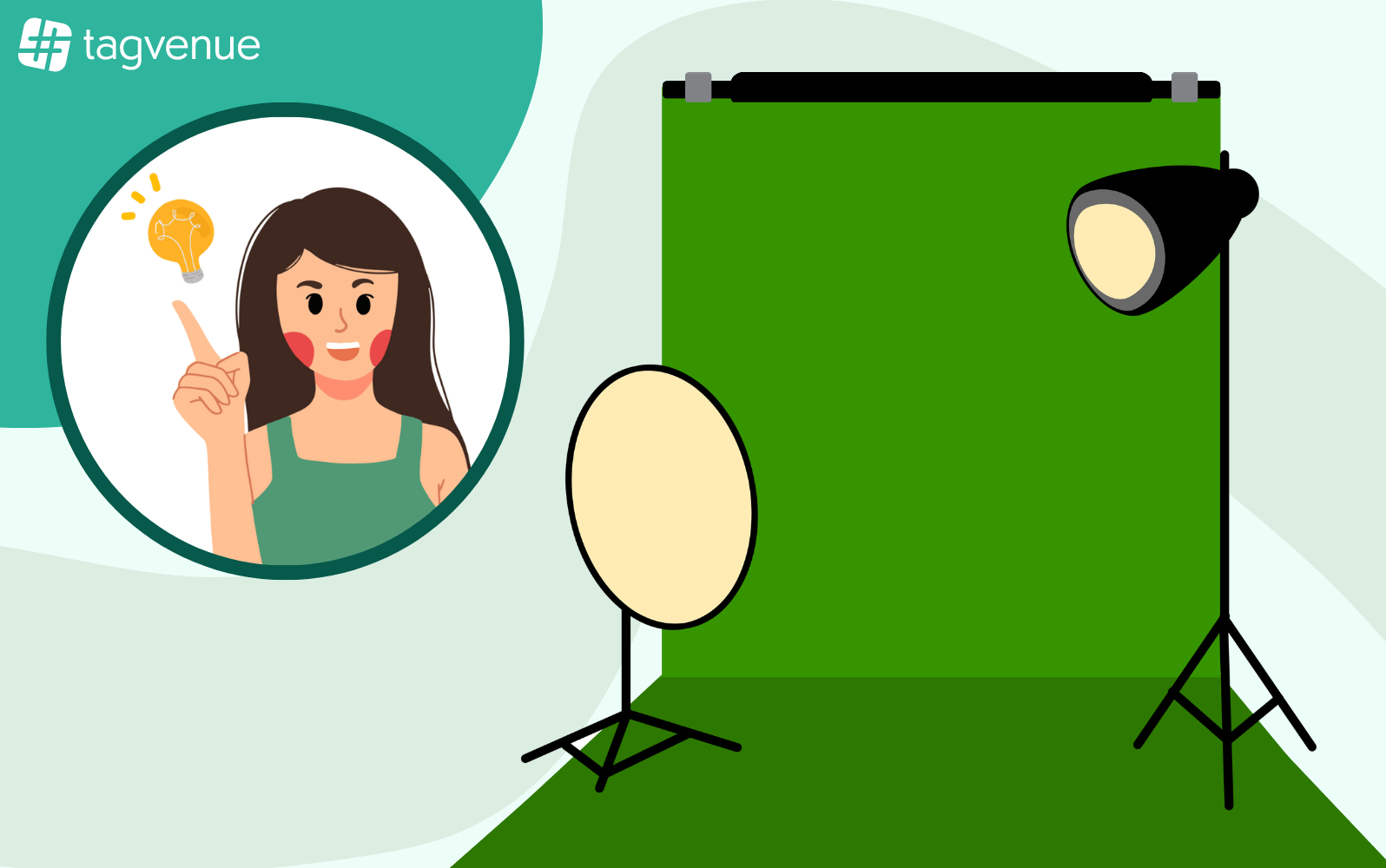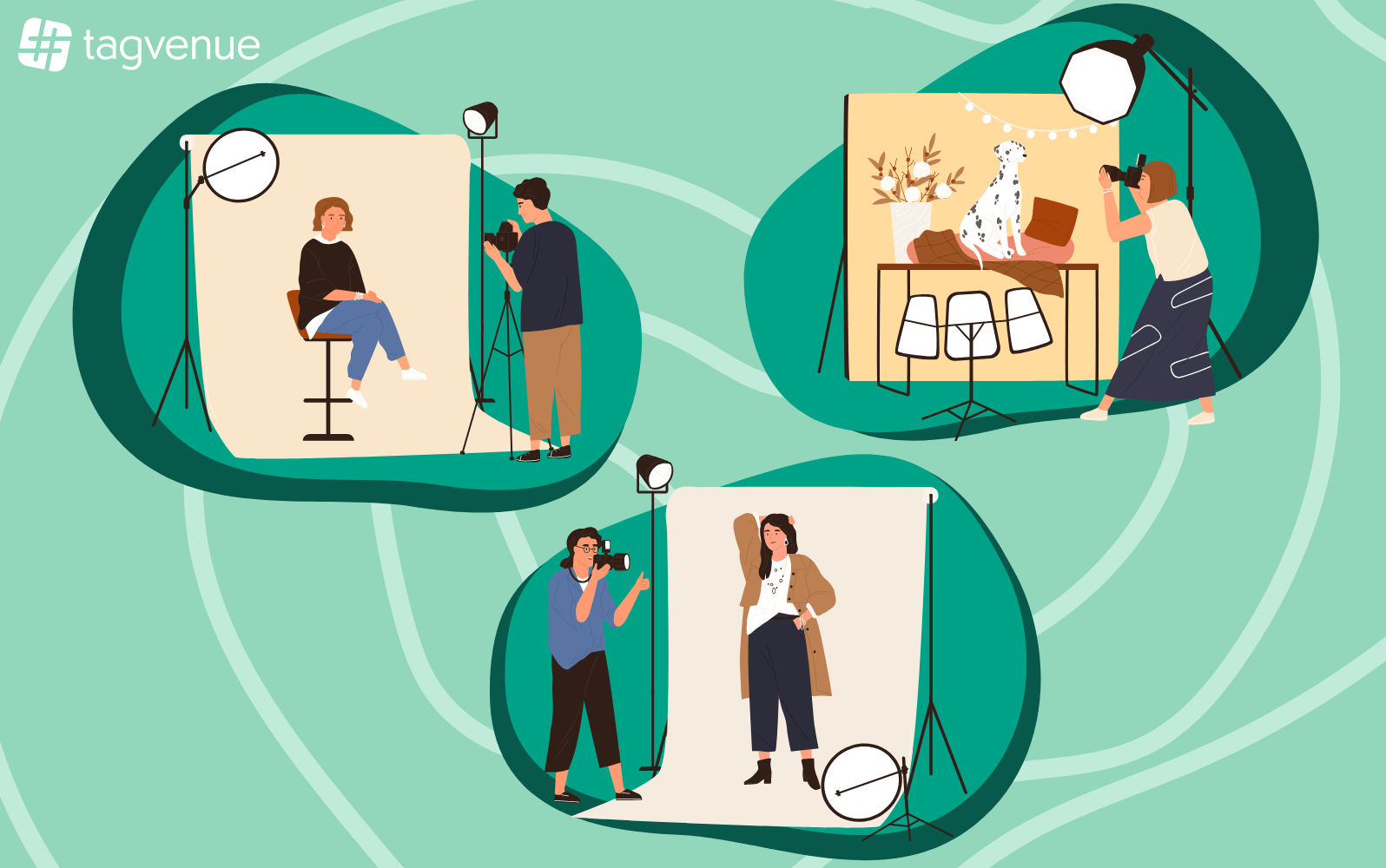Top Tips and Ideas for Creative Product Photography
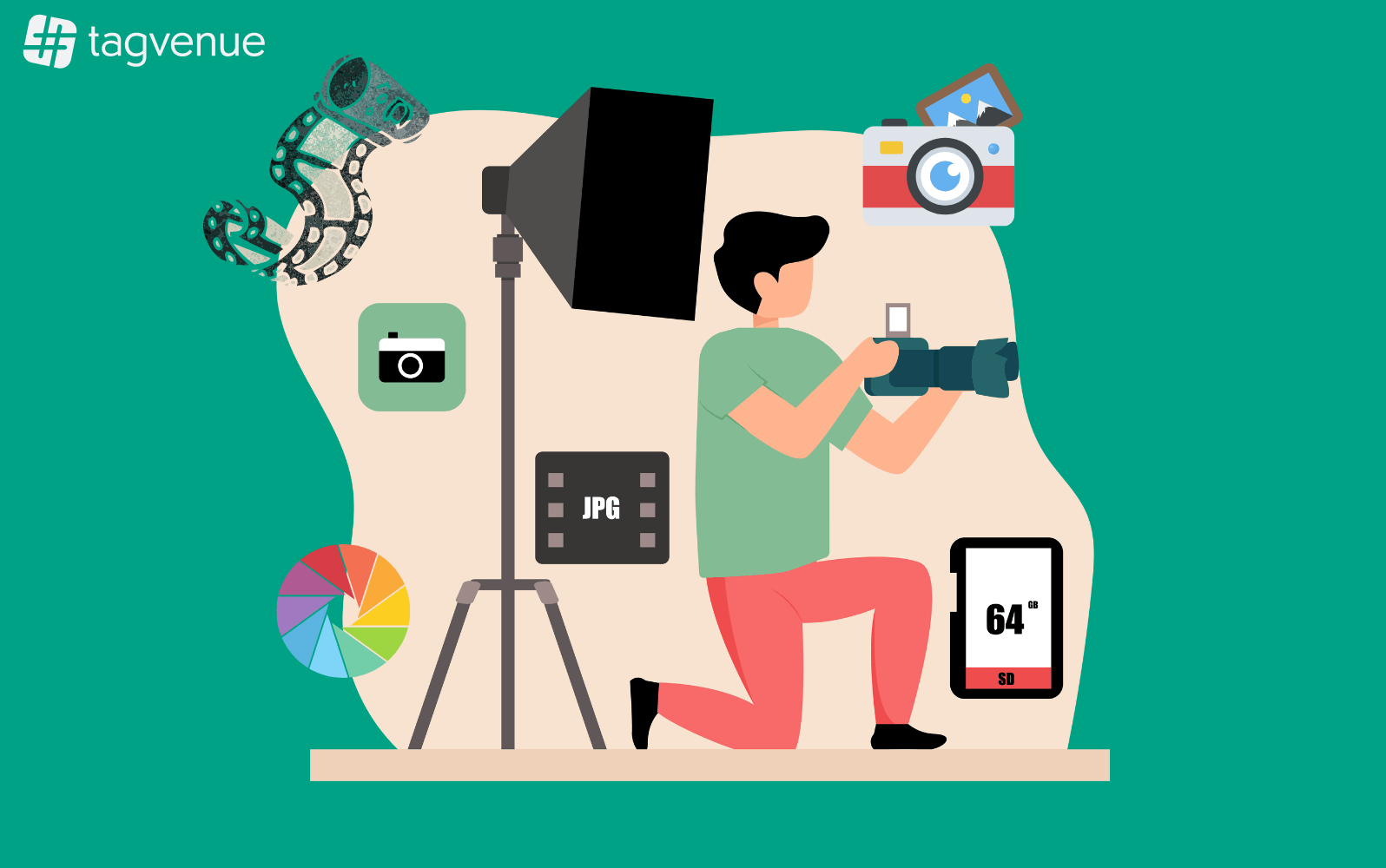
Innovative products need innovative photographs. Online marketing is key to the growth of any business, and having beautiful pictures is an absolute must. 21.8% of the world shops online regularly (that’s 1.6 billion people!), and ensuring that your product is seen in the right light is key to making sure it stands out from the crowd.
Photography is an indispensable marketing tool in e-commerce. Since customers cannot hold the product itself, image is everything. An attractive looking product is the centrepiece for an attractive brand. If the product is presented appropriately, shoppers will see more than just the image of a product, they will see their lifestyle on display.
Take a look through our list of some of the best product photography ideas and tips to help you perfect your craft!
Tips for Product Photography
Product photoshoots can be a lot of work. Here are a few tips to help you through the planning process and make sure everything goes smoothly:
#1 Moodboard
Before you get in the studio, get inspired. Look to other marketing campaigns and let them influence your approach. Create interesting colourways and draft a set that will help the product you are photographing pop.
#2 Finding the Perfect Space
The setting for your shoot should mirror the kind of lifestyle your product aims to promote. If it is something for around the house, a studio setting is your best bet. For furniture, seek a space such as a model home that comes with lots of beautiful natural light. If the product is an item like a watch, soap, etc, studio spaces are great (see our photo studio blog!). Why not let Tagvenue help put you in the perfect space!
📷 You may also like: 6 Ideas for Setting Up a Photography Studio: a Beginner’s Guide
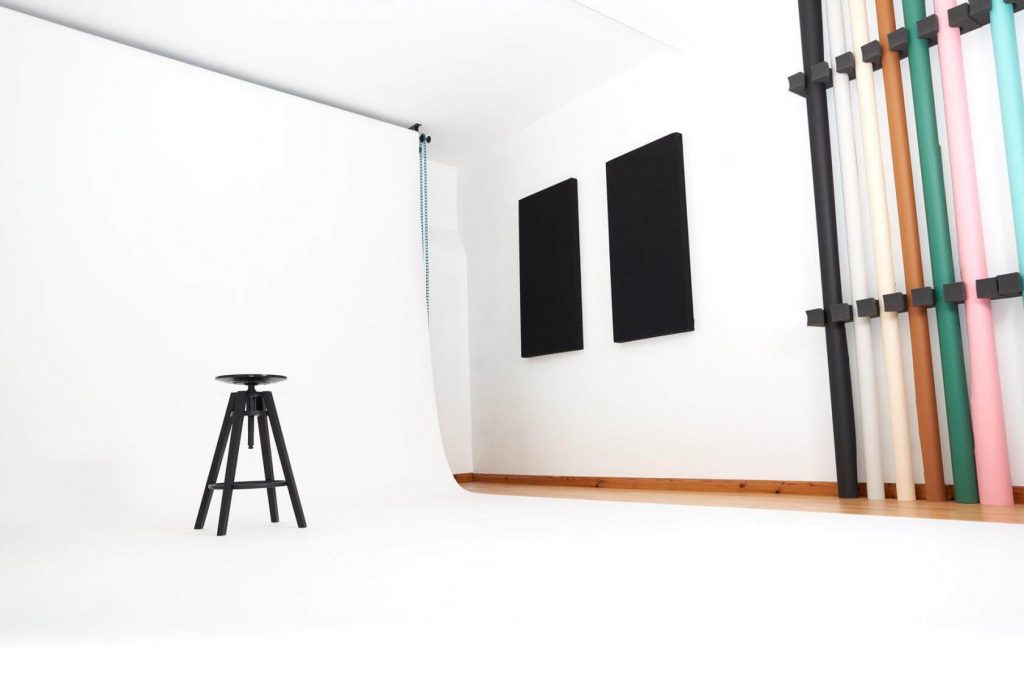
#3 Camera Settings
Getting the settings right on your camera is vital. The exposure time, aperture, and the focal length will greatly affect the lighting and mood of your images. Automatic settings are useful for general settings, but then fine tune accordingly. Take a variety of shots with zoom and from afar. If you are using your smartphone, be sure to keep track of the exposure.
#4 Always Adjust
Every shoot requires some on-the-spot adjusting. You have to try different lighting combinations, and different settings. Always change the position of the camera, and don’t be afraid to experiment with different backgrounds. After you take pictures, be sure to upload them to your computer as you shoot, and make adjustments based on how they look there. You should aim for consistency across all monitors in post-production.
#5 Editing and Retouching
Editing your photos is just as important as taking them. The way photos are edited reflects both your personal brand and the brand of the product you are photographing. Some ways to keep editing fresh are:
- Removing the background – This makes the product the focal point of the picture and keeps everything looking super clean
- Colour grading – Colour grading helps make the colours of the brand stand out. Photoshop makes this process a breeze.
- Always pay attention to the histogram – Histograms show which colours are the loudest and most exposed. A proper reading of the histogram in Photoshop or Lightroom can help you fine tune exposure settings.
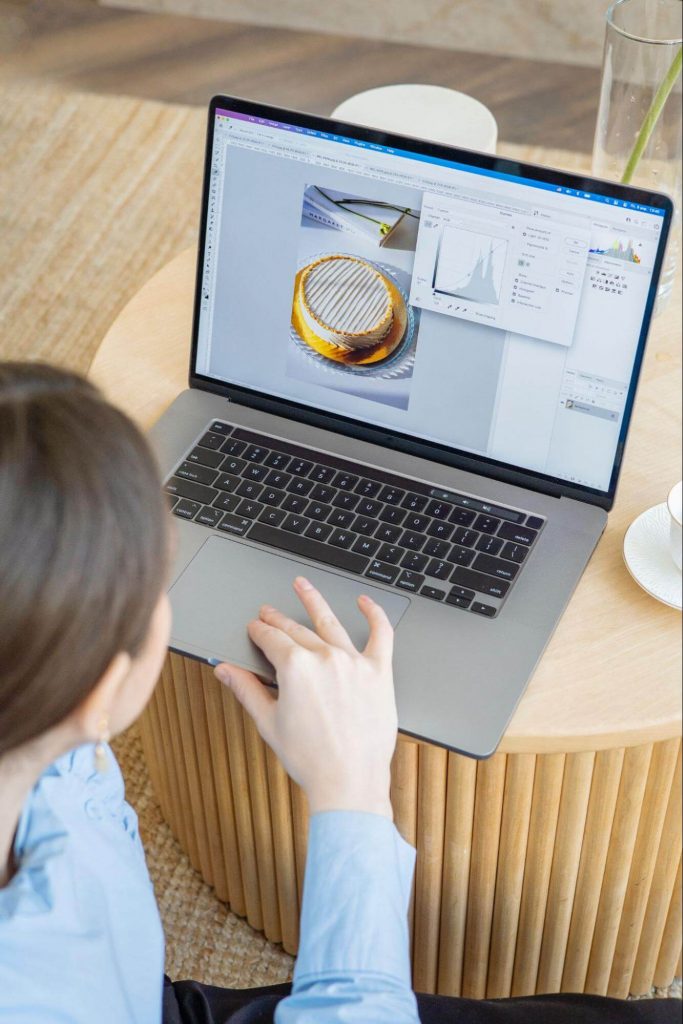
#6 Optimisation
Once your photos are taken and edited, you should optimise them for distribution. When you are sending your client their pictures , send a few different versions of each photo no larger than 200 KB. The best file type for websites and social media platforms is JPG as these files have the highest resolution and the smallest file size, your other option is to use PNG. Tinyjpg.com is a great tool for optimising your images for publication as well.
Think about where the pictures are going to be distributed. Have some images tailormade for the client’s website and also some appropriately sized for platforms like Instagram.
Creative Ideas for Your Shoot
#1 Use Symmetry
Symmetry is one of the most aesthetically pleasing photography techniques available. It adds balance to your images and displays the product as the centrepiece in a classically attractive way.

#2 Colour Blocking
Colour blocking is a technique that uses bold, contrasting colours. This showcases the product in an eye-catching way and is ideal for social media marketing campaigns, as well as marketplaces such as Amazon.
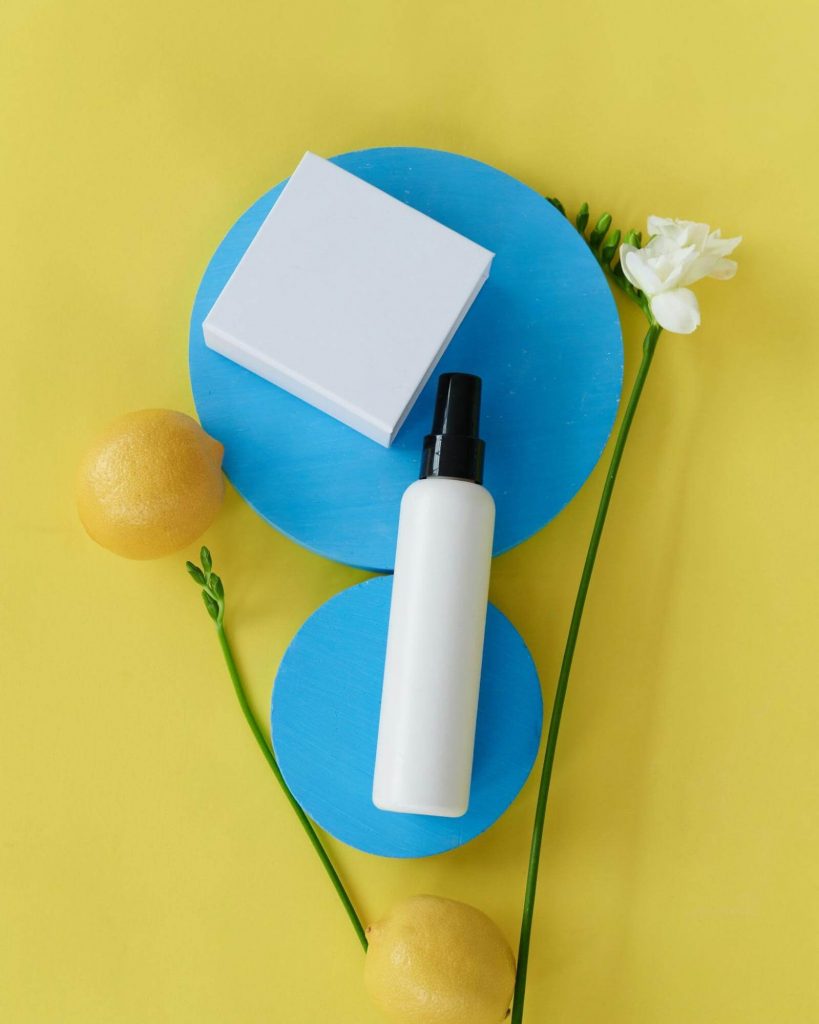
#3 Motion
Having objects or background textures in motion is a way to make your product stand out. They are a great way to showcase your product and the message you want to convey with the campaign. Smoke behind a product, for instance, adds elegance to the photographs.
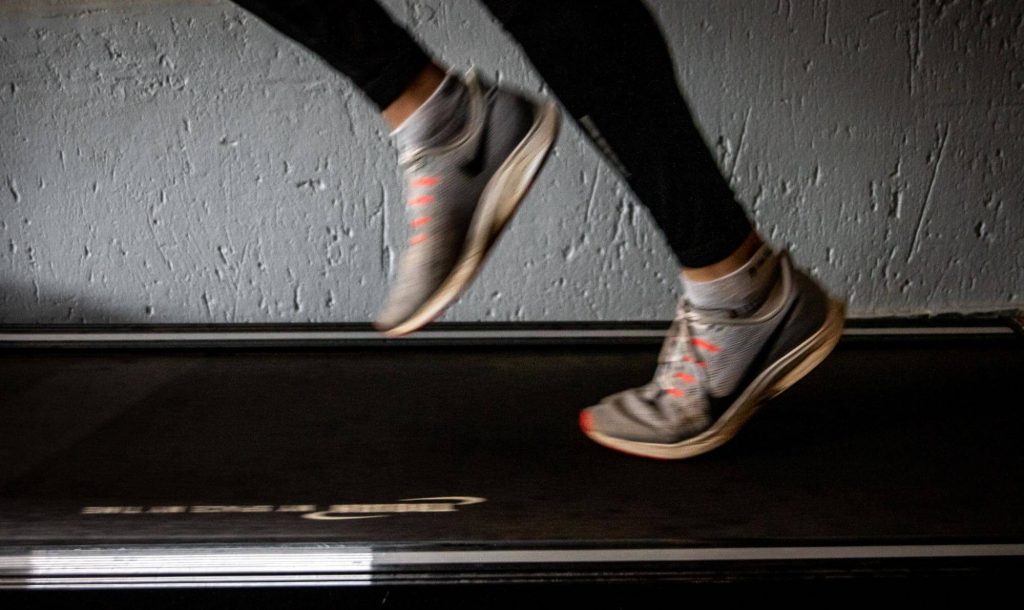
#4 GIFs
For targeted ads on social media platforms, GIFs have become increasingly popular. A great way to do this is to flatlay the product and have objects moving around it, or have the object itself in motion. This, on-top of a boldly-coloured background, is sure to make your product stand out!
#5 Macro Photography
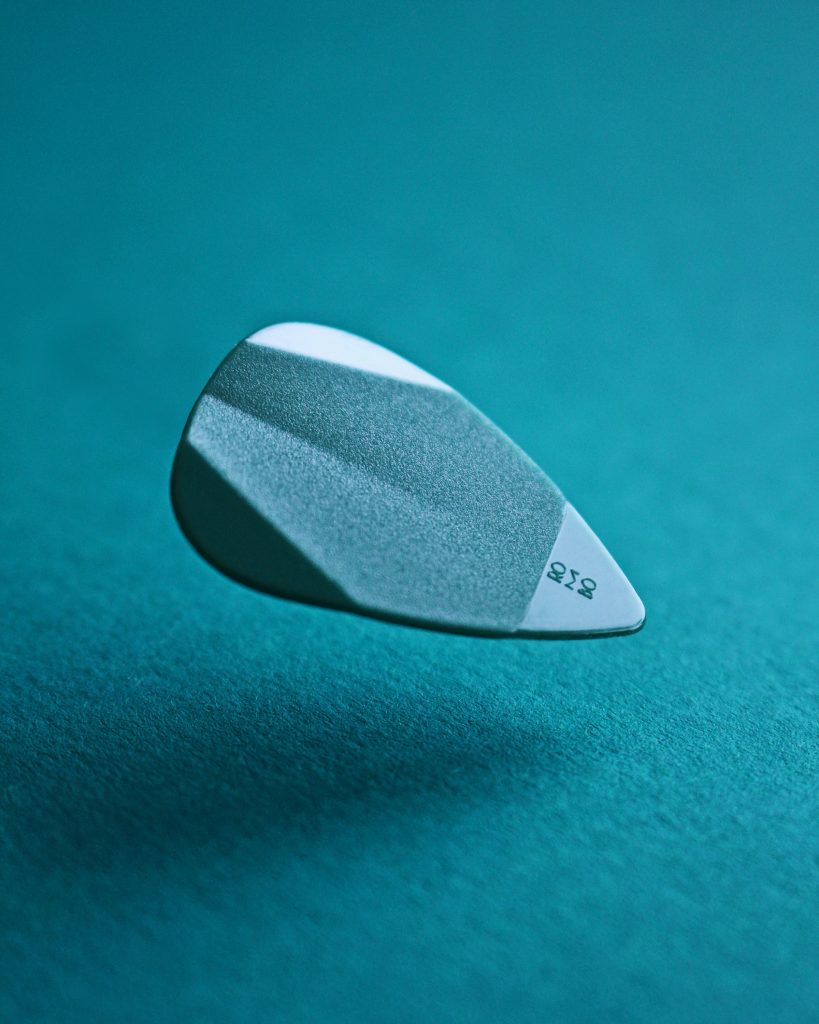
Macro photographs are super up close shots that are designed to show textures in great detail. Macro lenses do not have to be only used for up close shots either, they are great for tight portraits and still life photography.
#6 Still Life Shots
Still life photography is an artform that reveals the beauty in everyday items, which makes it perfect for product photography. Make your product the centrepiece in front of an understated, yet elegant background, and play with the lighting for the best results.
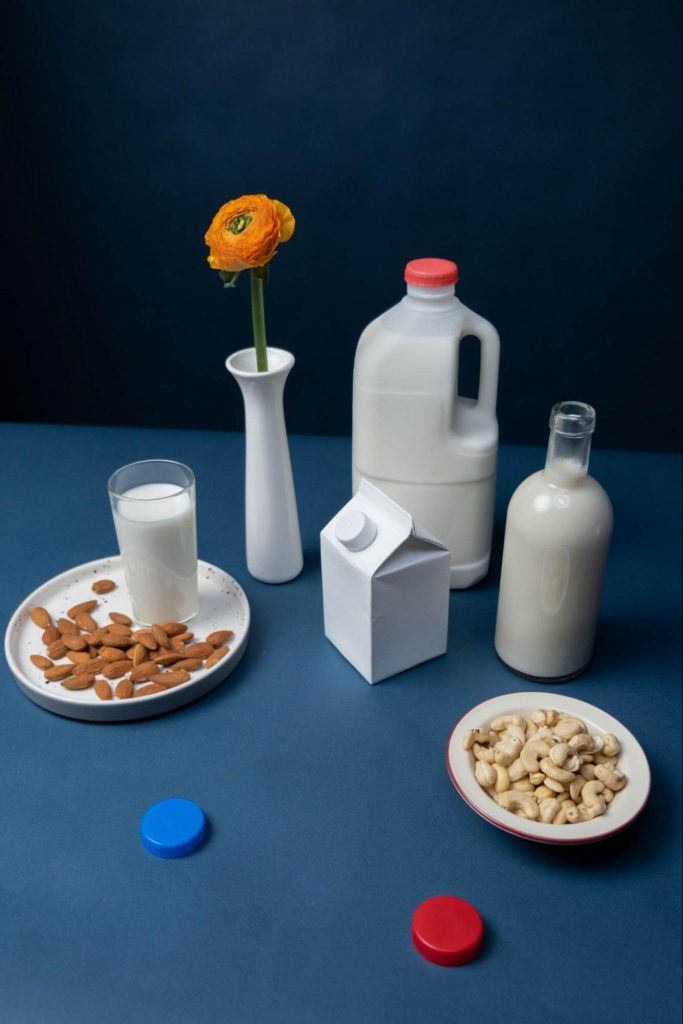
#7 Lighting
It cannot be stated enough that lighting is the life of any photoshoot. Experiment with the light and discover how each adjustment will reveal an entirely different perspective of your product. You can start with different placement of the lights themselves, and then try different intensities, and flashes, and don’t forget about reflectors and diffusers!
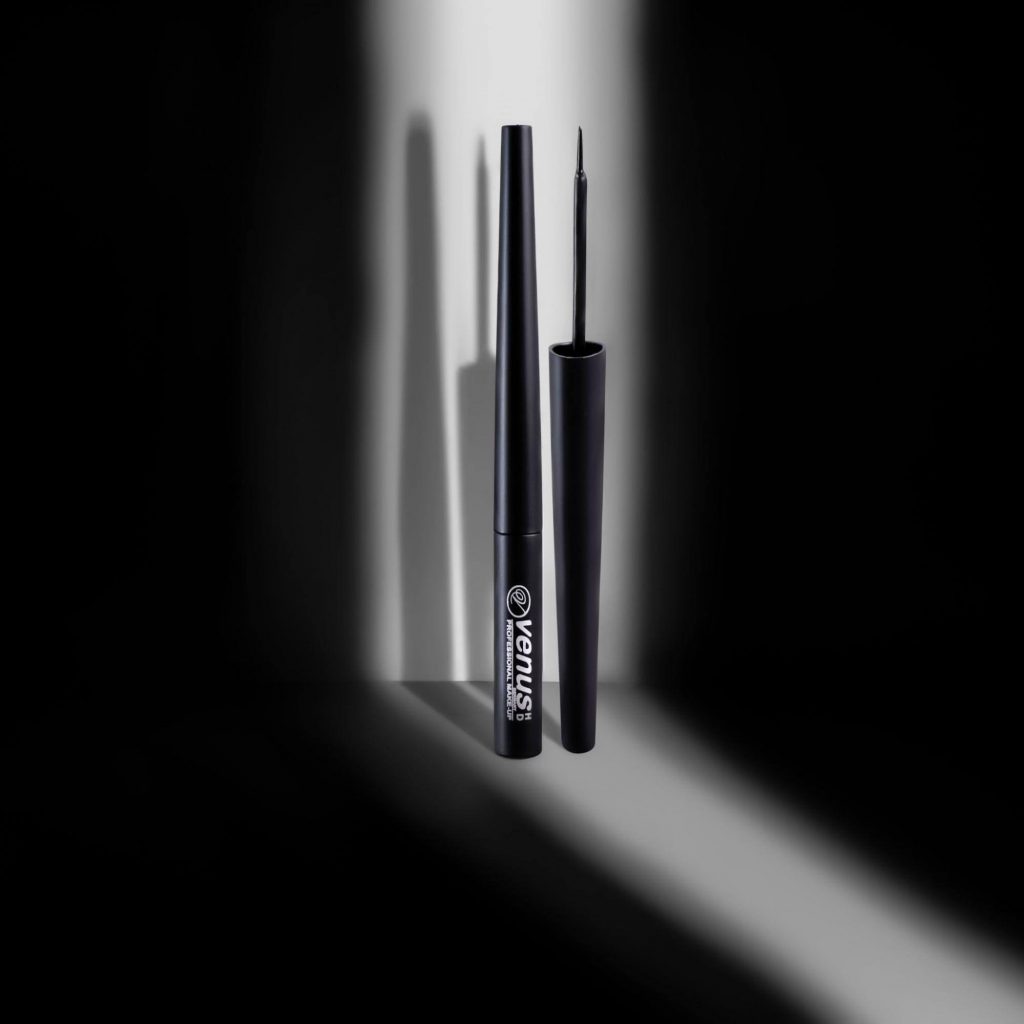
📷 You may also like: The Essential Natural Lighting Photography Guide
#8 Show the Product Being Used
Adding the human element to your shoot will make it easier for the audience to imagine owning the product themselves. If you are photographing shoes, for instance, then show someone running or walking in them. Shooting for a drink? Have a model pour it into a glass!
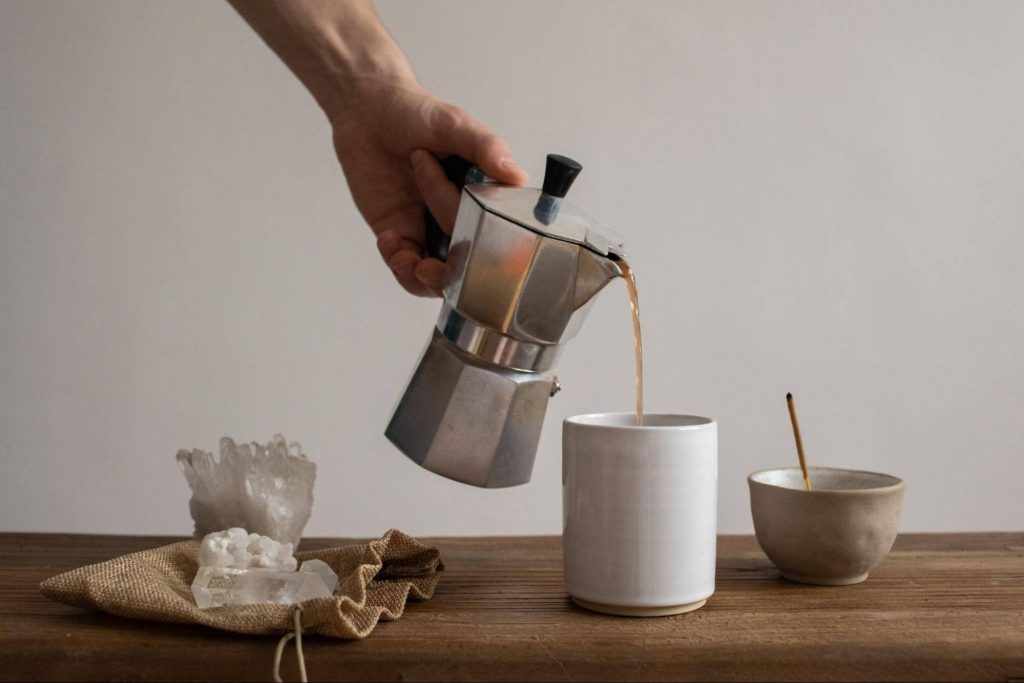
#9 Take it Outside!
Photo studios are always great options, but they can be limiting. Doing a product shoot
outside can help you take your style to a whole new level and add an interesting perspective on your product. Check out some of these examples below:
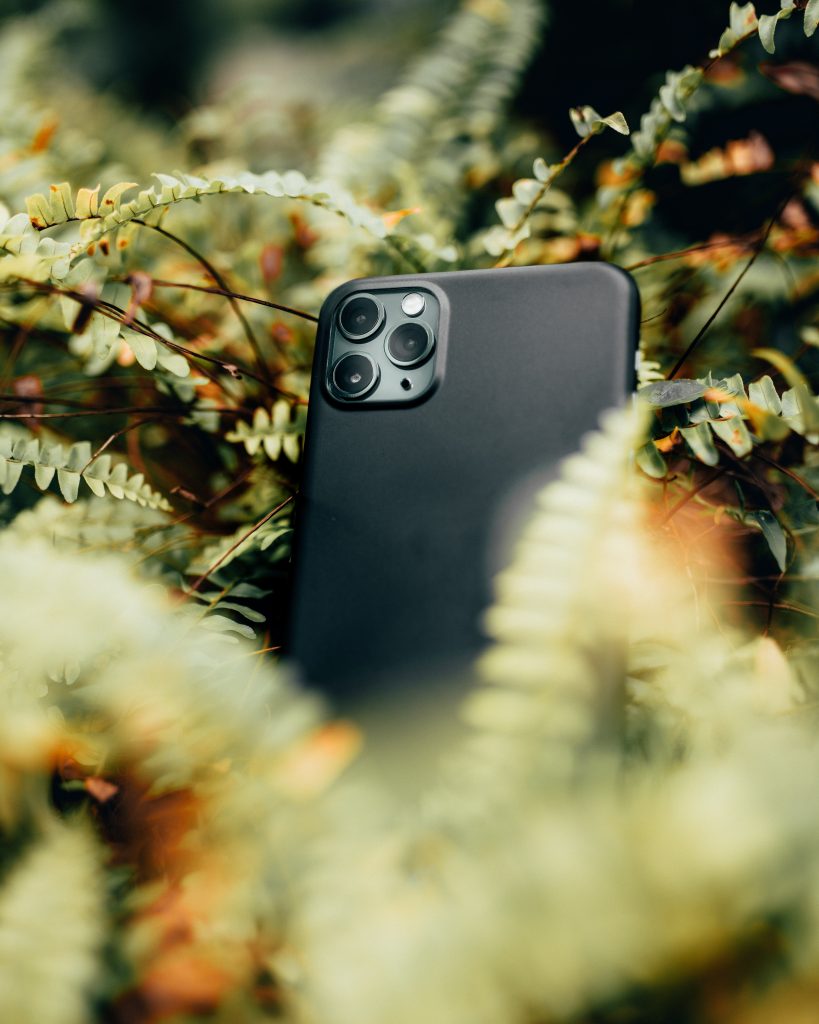
#10 Play with Angles
Product photography is not as straightforward as it may seem. Many think that you are supposed to shoot the product on a level field so the product appears to be eye-level, but this isn’t the case. New angles introduce new eye-catching perspectives, which will help the product you are shooting stand out from the competition.
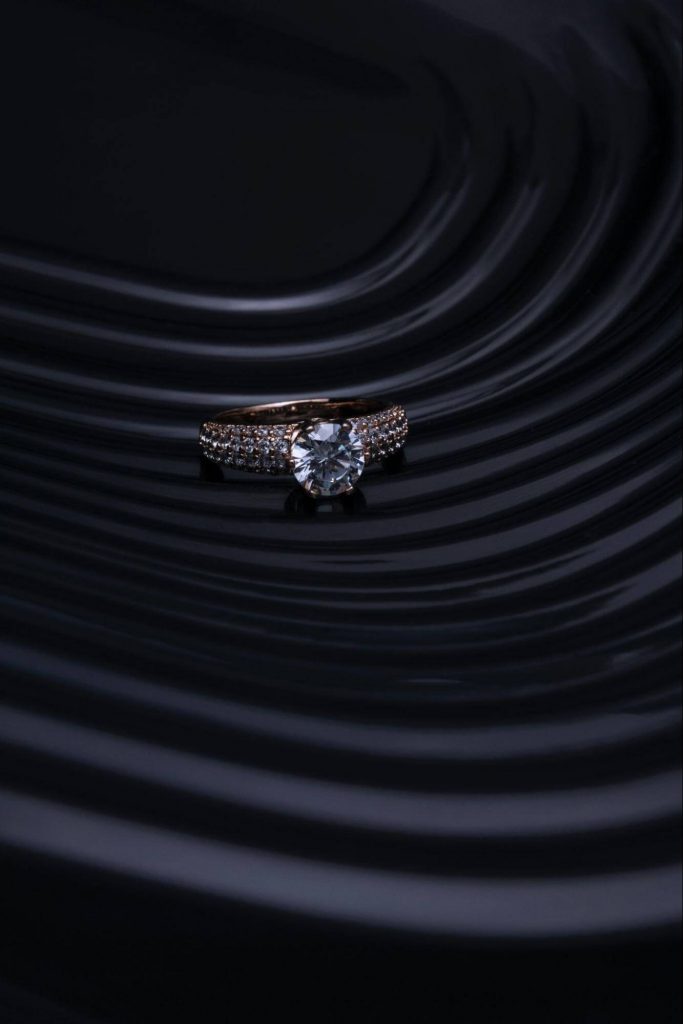
Must-Have Gear for Creative Product Photography
Camera
As far as vital pieces of gear go, a camera is certainly at the top of the list. However, the days of having to have an expensive full-frame DSLR are gone. Cropped sensor cameras and a few good lenses will do the job just fine. Also, remember how far cell phone cameras have come in the past few years. Phone cameras (of at least 12 megapixels) take excellent product photos and they are great for Instagram optimisation.
Tripod
With product photography, consistency is key. The easiest way to to ensure consistency across images is having a reliable tripod for your shoot. If your camera will be shooting at a low shutter speed, then a tripod is a must to prevent blurry images.
Lenses
A variety of lenses is vital. You want as many options for your shoot as possible, and the more lenses the better. If you want some up close shots for textures, macro lenses are the best. If you are shooting on a set, consider a 24mm-70mm zoom lens for fresh angles and focal points.
Lighting
Standing lights are a must. They help bring your product to life and they are easily manipulated. To compliment standing lights, mirrors are also a huge help. Mirrors come in colours such as gold, silver, and copper which can add warmth and soft light to your product.
Tables
A table is important for staging your product. Be sure to have a clean and wrinkle-free tablecloth for the product to rest on. These are not a must for every shoot, but they are definitely needed for smaller or handheld products. Having boldly coloured backgrounds and tablecloths is one way to make your product pop.
It is a great idea to have tape and clamps handy to make sure your set stays in place and looks clean and professional. Check out our guide for setting up a photo studio for some more tips.
Key Takeaways
Product photography is the best way to sell new and innovative items. These shots are designed for social media and online marketplaces, which are drastically increasing in popularity year after year. Product photography is a great way to express your creativity and show great products in the light they deserve. These shots can be done with minimal gear, a creative eye, and a wonderful space to make your vision a reality. Browse through Tagvenue’s listings and find the space that’s right for you!
FAQ
What makes a good product photo?
A good product photo is one that shows the product in an attractive way, and promotes the lifestyle and brand that goes along with the product. Quality product photos need good lighting, clear images, and a narrative about the product and why people need it. These photos should work well on brand websites, e-commerce sites, and social media.
What backgrounds are the best for product photography?
Classic and easily edited backgrounds are white or black. This works well with almost any lighting, but if you are looking for something more creative, don’t feel limited to the studio. Tagvenue has venues for all occasions and visions for you to choose from.
What is lifestyle product photography?
Lifestyle product photography puts the product in context of how it would be used. These are done by styling a scene that promotes the use of the product and the lifestyle that comes along with the product. This is a key part of branding.
How many product images should you have for each campaign?
This number largely depends on the scale of the marketing campaign, but having a goal of 5-8 pictures should be your goal. This way there will be website specific photos, social media posts, thumbnails, and images for e-commerce platforms like Shopify or Amazon.
What is the most important thing in product photography?
The most crucial element in product photography is lighting. Proper lighting can accentuate details, create depth, and highlight a product’s unique features. Regardless of how creative or high-quality your camera is, your product won’t be showcased at its best without the right lighting. Remember, it’s all about presenting your product in the most flattering and true-to-life manner and proper lighting helps you to do that!
How do I make my creative product photography stand out?
Here are the top 4 tips to make your product photography stand out:
Select the right background – Opt for contrasting backgrounds that make your product pop but don’t distract. A seamless white background is a classic choice, but don’t be afraid to experiment!
Use props – Use relevant props or settings that enhance the story of the product. This can provide context and show the product’s purpose or appeal.
Experiment with angles and perspectives – Don’t just settle for straightforward shots. Play with different angles and perspectives to present a complete view and feel of the product.
Edit your images carefully – A touch of color correction, sharpening, and contrast can make your images jump off the screen.
How can I be a better product photographer?
To elevate your skills in product photography, make sure to:
Practice regularly – Like any skill, the more you practice, the better you get. Regularly challenge yourself with new products and settings.
Study others – Analyze product images from leading brands and photographers. Understand what works and incorporate those learnings into your style.
Invest in education – Attend workshops, take online courses, and read books on product photography. Continuous learning keeps you updated with the latest techniques and trends.
Ask for feedback – Seek feedback from peers, mentors, or online communities on your work. Constructive criticism can highlight areas for improvement you might have overlooked.
Upgrade equipment gradually – Start with what you have, but as you progress, consider investing in better lenses, lighting equipment, or software to enhance your shots.
Remember, every product has a story. Your job as a photographer is to tell that story in the most compelling way possible. Happy shooting!

